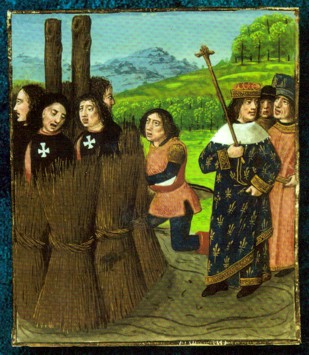On September 16, the American media awoke to the existence of Private Military Contractors when Blackwater personnel sprayed Baghdad’s Nisoor Square with bullets. First eleven Iraqis were reported dead and with time the number rose to seventeen. Congressman Henry Waxman and his Oversight Committee have been busy conducting hearings in an effort to get to the bottom of Blackwater. Who were these people and what were they doing with their mysterious contracts? For those who study Blackwater, there is an unmistakable and curious religious angle. It shows up in the personal history of Erik Prince, born into a western Michigan family known for its deep engagement with and funding of the Religious Right. For Prince and his father, politics and religion seem to fuse into something integral. And indeed, the son’s decision to become a SEAL and then to steer the family’s business out of automobile parts and into the trade of the contract warrior seemed akin to a crusade.
But before there was Blackwater, DynCorp and Triple Canopy, there were other private military outfits, and one of them—now long out of business—is suddenly back in the news. Frances D’emilio reports for the Associated Press:

Ignored for centuries, documents about the heresy trial of the ancient Christian order discovered in the Vatican’s secret archives are being published in a limited edition – with an $8,377 price tag.
They include a 14th-century parchment showing that Pope Clement V initially absolved the Templar leaders of heresy, though he did find them guilty of immorality and planned to reform the order, according to the Vatican archives Web site. But pressured by King Philip IV of France, Clement later reversed his decision and suppressed the order in 1312.
Only 799 copies of the 300-page volume, “Processus Contra Templarios,” – Latin for “Trial against the Templars” – are for sale, said Scrinium publishing house, which prints documents from the Vatican’s secret archives. Each will cost $8,377, the publisher said Friday.
An 800th copy will go to Pope Benedict XVI, said Barbara Frale, the researcher who found the long-overlooked parchment tucked away in the archives in 2001.
The Knights Templar left a legacy scattered across Europe and the Holy Land; their traces are found in my favorite London pub, among other things. And of course, they helped line the pockets of the author of the DaVinci Code. They had been denounced as criminals and conspirators, accused of “unnatural acts.” But later historians agree that they were the victims of their own wealth and success. They stood in the way of early rulers aspiring to an ideal of the unitary executive.
But there’s a message for Henry Waxman in all of this. With a price of over $8,000 a volume, the Vatican is making a profit out of the publication of its inquiry. Maybe the Government Printing Office can find a model worthy of emulation?


